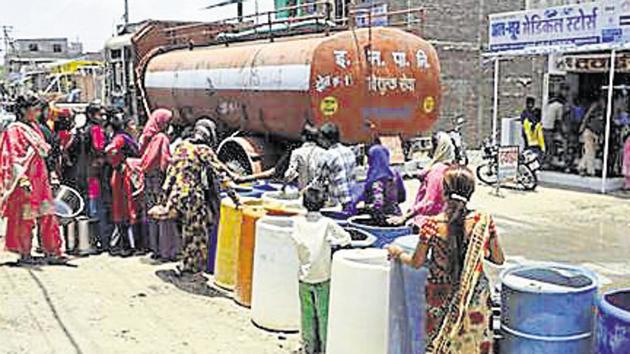Soon, reuse treated water in Mumbai for non-potable purposes
Plan will help the BMC promote reuse of waste water for non-potable purpose to meet the increase in demand owning to urbanisation and population growth.
As part of implementing suggestions of its report titled, Towards Equitable and 24x7 Water Supply For Greater Mumbai, the Brihanmumbai Municipal Corporation (BMC) is chalking out a master plan to reuse treated water from its waste water treatment facilities.

The master plan will help the BMC promote reuse of waste water for non-potable purpose to meet the increase in demand owning to urbanisation and population growth.
Mumbai has waste water treatment facilities at Colaba, Worli, Bandra and Dharavi, Versova, Bhandup and Ghatkopar, and Malad.
The facilities do primary treatment of waste water that has been used in the city and release it into the sea.
However, BMC is upgrading the treatment facilities so that they will be able to treat water at the tertiary level.
Once upgraded by 2025, the facilities will treat 2,484 million litres of waste water per day (mld).
As per its new master plan, BMC will use 20% or 496.8 mld of treated water for non-potable purposes such as gardening,
car washing in garages and flushing.
The rest of the reused water will be released into the sea after it is treated as per requirements of the pollution control board.
It will also tap bulk consumers of water such as the Railways, Metros, bus depots, car service stations, residential and commercial complexes, dyeing industries, pharmaceutical companies, mechanical industries, RMC plants, gardens, race course, universities, colleges, and schools, public toilets, stadiums, fire brigade stations, malls, IT parks, airports, marriage halls and hospitals, who can reuse treated water for non-potable purposes.
BMC recently invited bids for a consultant to help frame a
master plan for reuse of waste water.
The consultant will first prepare a plan for Colaba waste water treatment facility, which is in its final stage of upgradation and will be commissioned by October.
The consultant will then take up work on Worli and Bandra facilities, followed by Bhandup and Ghatkopar and finally Versova and Malad.
It will give civic body an asset management road map for waste water reuse infrastructure such as water filling points, alternative supply networks and pipelines.
A senior official of Mumbai Sewage Disposal Project department, which is monitoring the project, said, “Public outreach is going to be an essential part of the master plan. We need to create public awareness about the need to reuse water.”
“We will conduct workshops, seminars, print newsletters, organise presentations at schools and colleges and plan open house events.”



